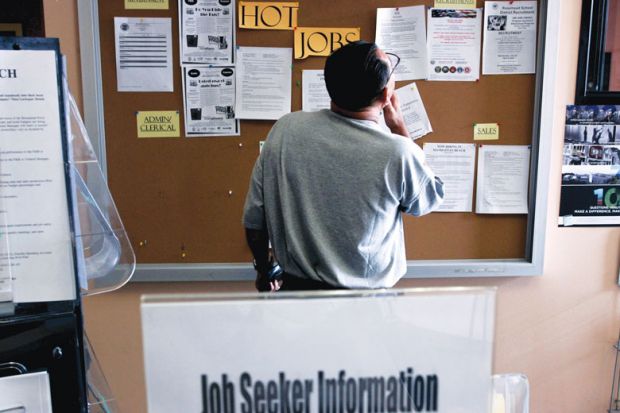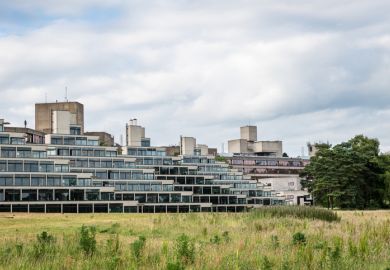Unprecedented job losses across US higher education are reshaping labour relations, with faculty unifying in their demands for shared governance rights and welcoming greater alignment with lower-paid adjuncts.
US universities have cut 4 per cent of their workforce over the past year as Covid-related economic stresses have compounded existing problems such as a decline in the number of school-leavers.
That is translating into greater labour conflict – and cooperation. One leading example involves the American Association of University Professors, which has opened formal investigations into several institutions accused by their faculty of making cuts in jobs and programmes without observing traditional routes of consultation.
“It’s making activists out of faculty,” said Tanya Loughead, a professor of philosophy and president of the AAUP chapter at Canisius College, a private Jesuit institution in Buffalo, New York, that has laid off 90 workers since the pandemic began.
Many US colleges pride themselves on a shared governance model in which academic staff are part of the campus administration and other faculty may be drawn in for input at times of major decisions.
But Canisius and a half-dozen other colleges that the AAUP has chosen to investigate have been accused by their faculty of acting unilaterally in instituting pandemic-related cutbacks.
While issuing that blame, some tenured and tenure-track faculty also are turning inward, seeing the Covid-related layoffs in their ranks as a lesson in the need to take more seriously the large and growing numbers of low-paid adjunct and contingent instructors working at US higher education institutions.
“Faculty have been ignoring that problem for decades,” Professor Loughead said. “We should have been, as a group, paying attention and joining in solidarity with adjuncts a long time ago.”
The investigative process undertaken by the AAUP, the nation’s leading faculty association, will have considerable power of influence in the job market by formally branding institutions as violators of governance norms.
The association, with 500 campus-based chapters, does recognise that many US colleges face truly difficult financial circumstances, said Anita Levy, a senior programme officer in the AAUP’s department of academic freedom, tenure and governance.
But those facing genuine danger still could consult more closely with their faculty, Dr Levy said. In many instances, she said, business-oriented administrators have seized on the pandemic as an excuse for job cuts that are not justified by the actual scope of the financial crisis they face.
The 90 layoffs at Canisius, Professor Loughead said, include about 20 of its 150 tenured and tenure-track faculty. None, she said, occurred among the college’s vice-presidential ranks, which have swollen from three or four to about 15 since she arrived in 2005. The institution’s president is a professional lawyer who, she said, does not have a doctorate and has never taught.
“He doesn’t actually profoundly understand what faculty do, because he’s never done it,” Professor Loughead said. Among the resulting mistakes, she said, has been a heavy concentration of layoffs in subjects such as English and history, even though they are requirements for some topics, such as accounting, that were largely spared.
Such concerns were understandable, said Marjorie Hass, president of Rhodes College in Tennessee and a long-time professor of philosophy. There were circumstances, such as a pandemic, in which an institution’s leadership might need to move faster than normal shared governance processes might allow, she said.
“You may have to make changes to the structure” of shared governance at times of emergency, Professor Hass said. “But it doesn’t mean that you can’t get that perspective and the diversity of viewpoints and opinions in the room.”
POSTSCRIPT:
Print headline: US scholars fight for say in governance as Covid job cuts spread
Register to continue
Why register?
- Registration is free and only takes a moment
- Once registered, you can read 3 articles a month
- Sign up for our newsletter
Subscribe
Or subscribe for unlimited access to:
- Unlimited access to news, views, insights & reviews
- Digital editions
- Digital access to THE’s university and college rankings analysis
Already registered or a current subscriber? Login








